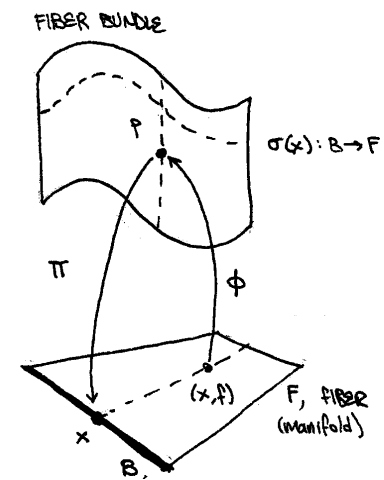P231, Fall 2016
Methods of Theoretical Physics
Instructor: Prof. Flip Tanedo, , Physics 3054
Textbook: Mathematics for Physics: A Guided Tour for Graduate Students, Stone and Goldbart (CUP 2009).
| Lec: | MWF 10:10-11:00am | Room: | Phy 2111 |
| Q&A: | M 3:10-4:00pm | Room: | Phy 3054 |
| Final: | none | Room: | n/a |
Grades and course announcements via iLearn.

This is a crash course in mathematical methods in physics and their applications. The course covers a range of topics that will either be useful in your graduate coursework and research or are topics that every physicist should know something about. Rather than being deep and general, the course is broad and applied: this is not a mathematics course, this is boot camp for physicists.
Assignments
Students will be evaluated on their performance in weekly homework assignments. There is no curve, I would like every student to be able to receive a top mark. I reserve the right to update this policy as necessary.
Homework 1, Due 30 September: Dimensional Analysis
Homework 2, Due 7 October: Green's Functions (4 Oct: typos corrected, thanks Cliff)
Homework 3, Due 14 October: Complex Analysis
Homework 4, Due 21 October: Complex Integrals, Sums, and Extra Dimensions
Homework 5, Due 27 October: Clip Show
Homework 6, Due 4 November: Differential Forms follow Green's Functions (1 Nov: corrections, thanks Adam and Cliff)
Homework 7, Due 14 November: The Cake is a Lie
Homework 8, Due 18 November: Flatland, Lie Algebras
Homework 9, Due 2 December: Final Homework
Due 2 December: Fill out an evaluation of the course on iEval
Lecture Notes
These notes are provided as is and are riddled with errors. Use them as a guide for what we covered in class.
Lec 1, 23 September: Dimensional Analysis
Lec 2, 26 September: Linear Algebra Review
Lec 3, 28 September: Differential Equations as Linear Operators
Lec 4, 30 September: Green's Functions
Lec 5, 3 October: Complex Analysis: analyticity
Lec 6, 5 October: Green's functions and a timely discussion of Homework 2
Lec 7, 7 October: Complex Analysis: the Residue Theorem
Lec 8, 10 October: WKB Approximation (Prof. Hai-Bo Yu)
Lec 9, 12 October: Green's Function for the Harmonic Oscillator (Oleg Popov)
Lec 10, 14 October: Advanced/Retarded Green's Functions
Lec 11, 17 October: Dispersion Relations, Kramers-Kronig
Lec 12, 19 October: Clip show---review and preview
Lec 13, 21 October: Tensors
Lec 14, 24 October: Transforming Tensors
Lec 15, 26 October: Relativity, Forms
Lec 16, 28 October: Forms
Lec 17, 31 October: Potentials, Poincare Lemma
Lec 18, 2 November: Moving Tensors, Frobenius Theorem
Lec 19, 4 November: Group Theory Overview
Lec 20, 7 November: Tangent Space at 1, the Lie Algebra
Lec 21, 9 November: Representations
Lec 22, 14 November: SU(2)
Lec 23, 16 November: Tensor Representations
Lec 24, 18 November: SU(3)
Lec 25, 18 November: Shortcuts with Indices
Lec 26, 28 November: Spacetime Symmetry
Lec 27, 30 November: Gauge Symmetry
Useful References
Students are encouraged to use complementary materials. Here are a few books that I like.
- Mathematical Methods in the Physical Sciences, M. Boas. A solid undergraduate-level textbook with easy-to-digest chapters and examples. Useful for the early topics in this course: differential equations, complex analysis.
- Physical Mathematics, K. Cahill. A graduate-level text with some good examples that show applications to physics.
- Mathematical Methods of Physics, Matthews and Walker. A classic older text which is accessible and covers many of the topics in the course.
- Mathematics of Classical and Quantum Physics, Byron and Fuller. Another classic reference covering similar topics as Matthews and Walker at a similar depth.
- Mathematics for Physics & Physicists. W. Appel. An readable intermediate-level text with many examples.
- Mathematical Methods of Classical Mechanics. V. Arnold. One of the best ways to learn differential geometry and its connections to analytical mechanics.
- Geometry, Topology, and Physics. M. Nakahara. A slightly more advanced reference focusing on differential geometry; a staple for the bookshelf of someone interested in theoretical physics.
Collaboration & Academic Integrity
This is a graduate course meant to prepare you for research. Part of this preparation is that I strongly encourage you to work collaboratively and learn from one another: this is a key part of becoming a good physicist.
However, I expect everyone to abide by the UCR code of academic integrity. Practically, I expect you to work on problems together and collaboratively. Each individual should write his or her own work and is responsible for all of the material. If you find other resources or papers relevant for your problems, cite them in your work.